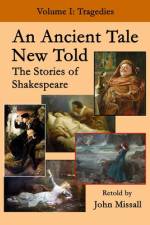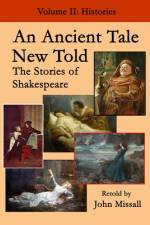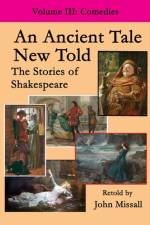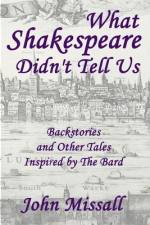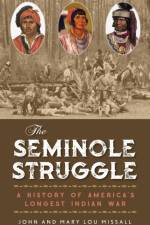- The Stories of Shakespeare - Histories
av John Missall
337
The stories told in the plays of William Shakespeare are among the most beloved in all literature. In this unique three-volume set, award-winning author and historian John Missall retells each play in modern prose while retaining Shakespeare's original language for the characters' conversations. The stories closely follow the action of the plays, retaining the Act/Scene structure of the originals. By using little added embellishment and minimal paraphrasing, the author allows the reader to easily understand these timeless dramatic works and appreciate Shakespeare's powerful yet beautiful wording. Volume II: The Histories includes the most familiar works, such as "Henry IV," "Henry V," Henry VI", and "Richard III", along with "King John," "Richard II," and "Henry VIII." Also included is "The Merry Wives of Windsor," so that all the plays featuring the popular Sir John Falstaff will be in one volume. Illustrated with numerous Shakespeare-inspired works of art (print version only), "An Ancient Tale New Told" is the perfect tool for those who would like to become familiar with the greatest works in the English language. From the text: Montjoy, the French herald, arrives with a message to Henry from the King of France. "Thus says my king: Though we seemed dead, we did but sleep. Tell him we could have rebuked him at Harfleur. Now we speak upon our cue, and our voice is imperial. England shall repent his folly, see his weakness, and admire our sufferance. Bid him, therefore, consider of his ransom, which must proportion the losses we have borne, the subjects we have lost, the disgrace we have digested. For our losses, his exchequer is too poor; for the effusion of our blood, the muster of his kingdom too faint a number; and for our disgrace, his own person kneeling at our feet, but a weak and worthless satisfaction." Then, to engender fear in Henry's troops, he says, "To this add defiance, and tell him, for conclusion, he hath betrayed his followers, whose condemnation is pronounced." The French will take no prisoners. Henry is not impressed. "Turn thee back, and tell thy king, I do not seek him now. My people are with sickness much enfeebled; my numbers lessened; and those few I have, almost no better than so many French. Go, therefore, tell thy master here I am; my ransom is this frail and worthless trunk; my army but a weak and sickly guard." Henry may be in a weak position, but he will not be deterred. "Yet, God before, tell him we will come on, though France himself, and such another neighbor, stand in our way. If we may pass, we will; if we be hindered, we shall your tawny ground with your red blood discolor. We would not seek a battle, as we are; nor, as we are, we say, we will not shun it." So informed, Montjoy departs to deliver his message.

